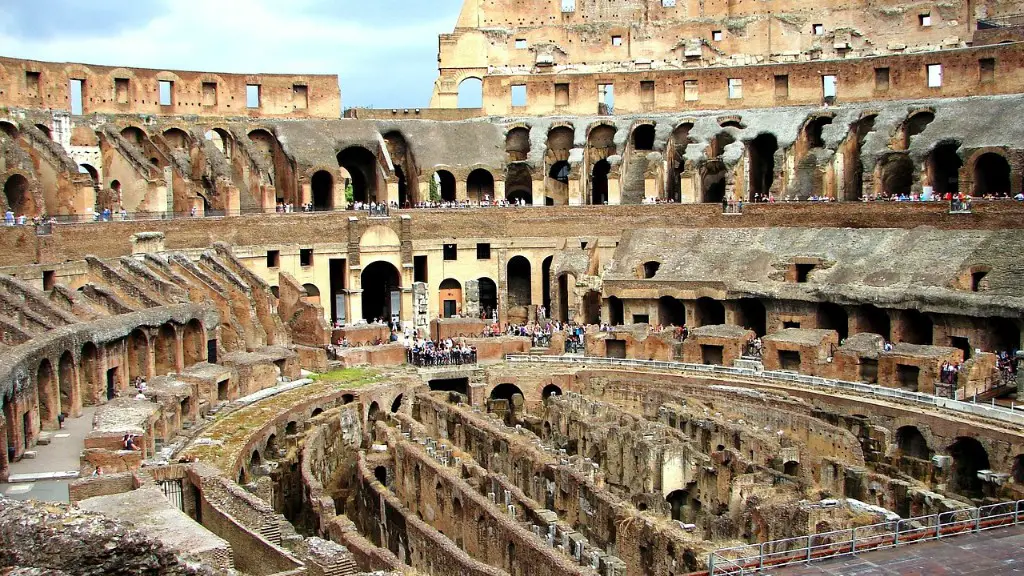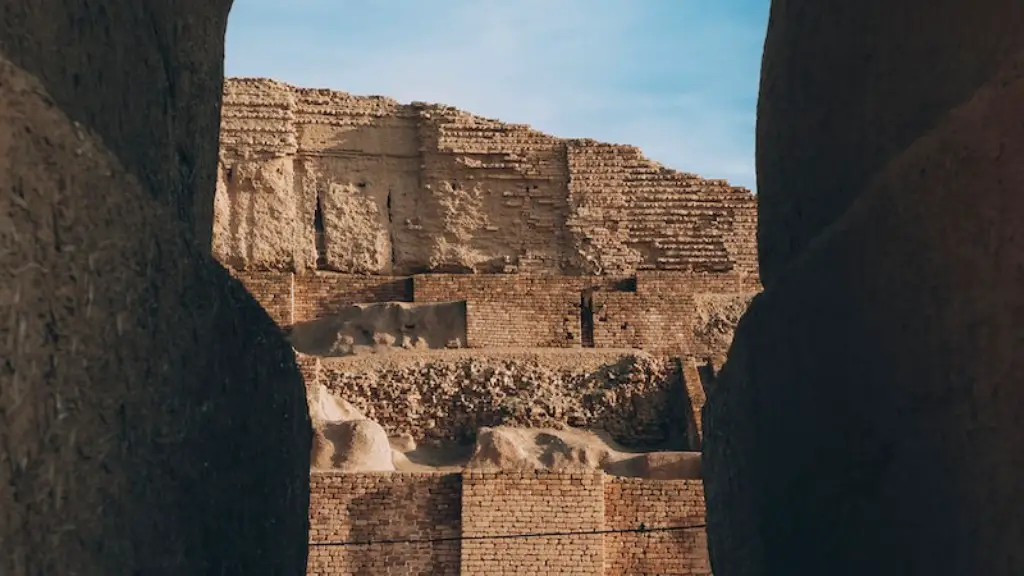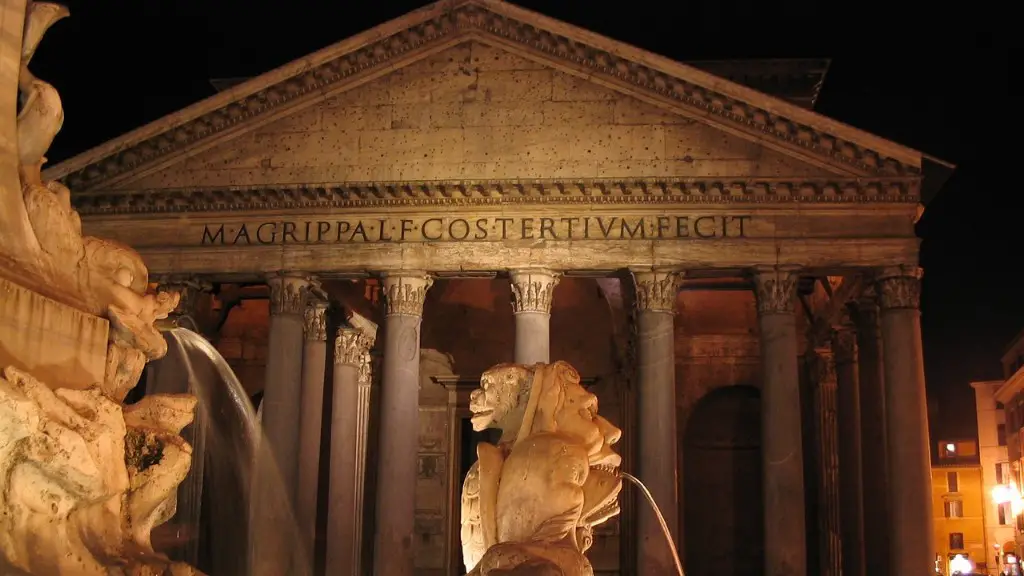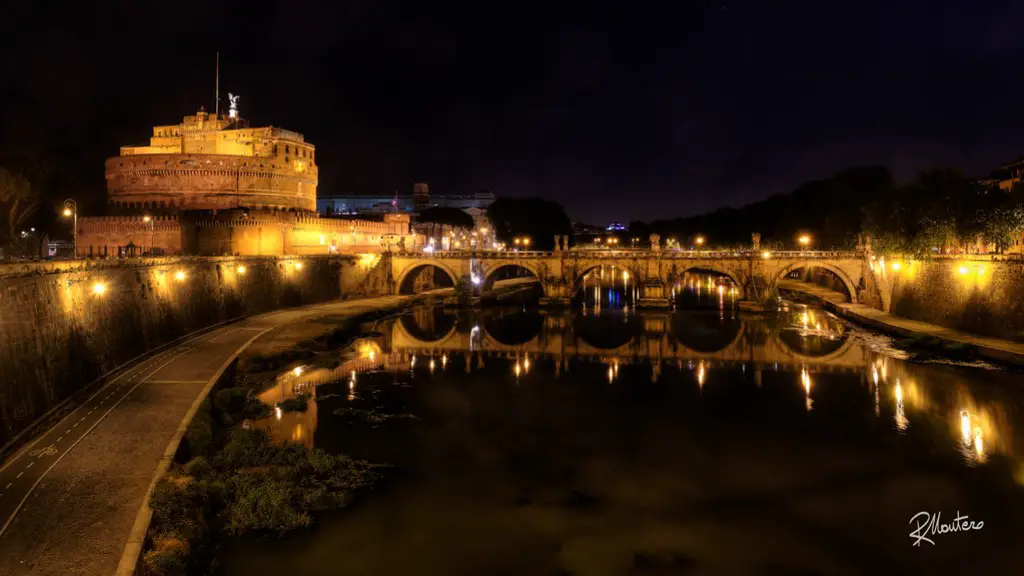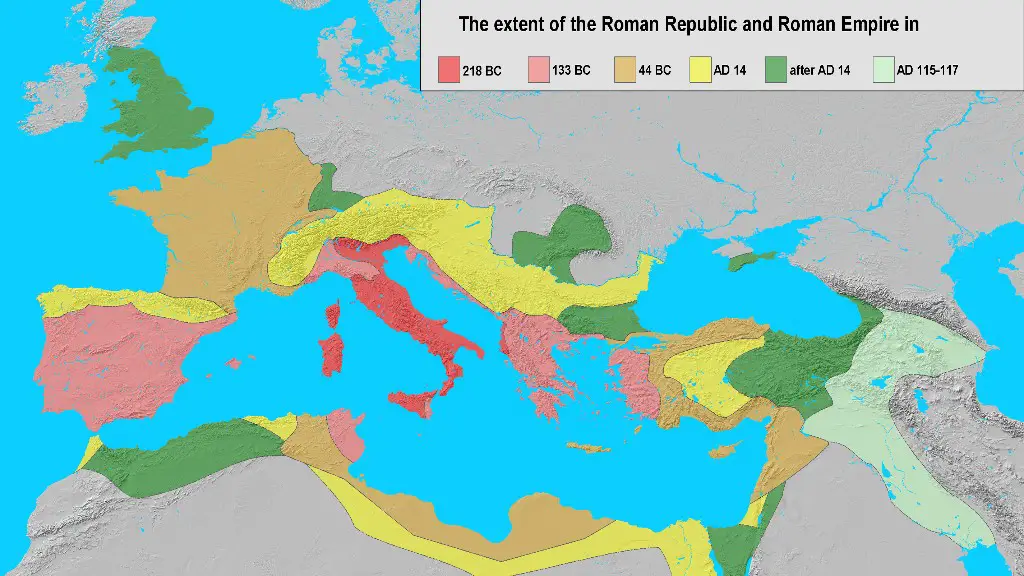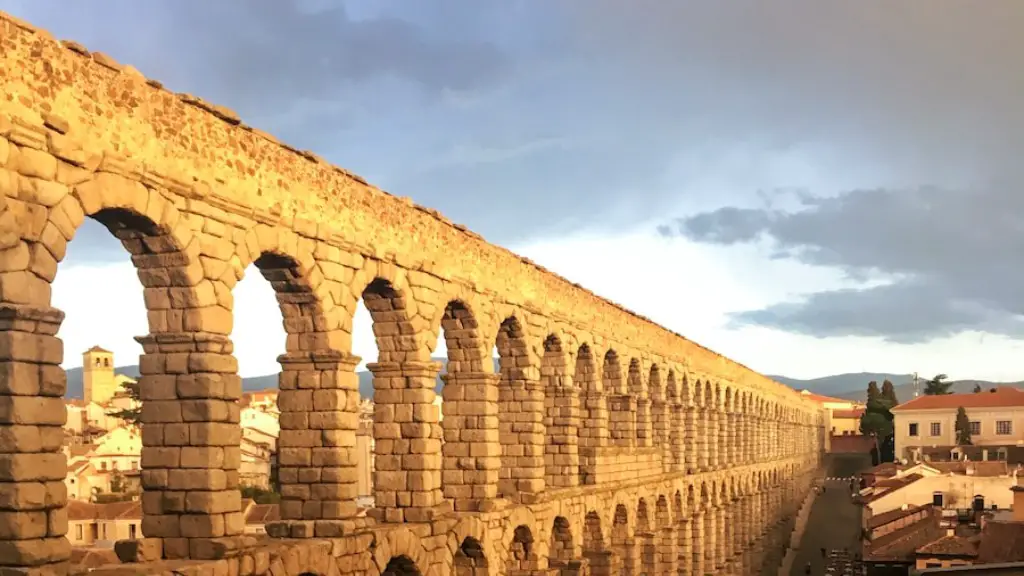Augustus, born Gaius Octavius, was the first emperor of Rome who reigned from 27 BC until his death in 14 AD. He was a major political figure during the period known as the Roman Republic and is best remembered for ushering in the grandeur and stability of the Roman Empire. His rule spanned over 40 years and he used his considerable power to expand the economy, strengthen the military, and promote the arts and culture throughout the region.
Augustus was the great-nephew of Julius Caesar and viewed himself as the heir to Caesar’s legacy. He was able to assume control of Rome’s military by relying heavily on veteran soldiers that had served in the civil wars. He used this newfound power to end Rome’s civil wars, create political stability, and develop the first Roman imperial government.
Augustus would pass several popular reforms that were designed to bring back the old Republic, including the rights of minorities and those who may not have necessarily been supported by the dictator. Augustus reinstated the senate and introduced a new electoral system that prevented any one citizen from becoming too powerful—a system that ultimately reduced the chaos and violence of the Republic.
Under Augustus’ rule, Rome experienced unprecedented stability, growth, and prosperity. Through an ambitious building program, Augustus built aqueducts, roads, and public buildings such as the Forum of Augustus, which served as the center of the city’s life and the starting point for religious festivals and spectacles. Augustus also widened the opportunity for public office and adopted religious reforms that incorporated worshipping the imperial family.
The strength of the Roman economy during this time was reflected in the increased number of large plantations, gold mines, and trading posts across the Mediterranean. Augustus declared himself the father of the state and was welcomed by the people as the divine ruler and protector of Rome. He changed the calendar, which is named after him, and created the Imperial Coinage to increase the circulation of money. He also encouraged the fine arts, feasting, and support for the army.
Augustus’ impact on Roman culture and politics can still be seen today. His reforms provided stability and marked the transition from a republic to an empire, allowing for the flourishing of the arts and literature of the time. His establishment of a code of laws provided a necessary foundation for governance and centralized power in the hands of one leader. While some of his policies were restrictive and oppressive, Augustus was appreciated for constructing a society that would last centuries and influence generations to come.
The Growth of Rome Under Augustus
Under Augustus’ rule, Rome’s boundaries reached their greatest extent in history and the city itself became a sprawling metropolis. Roman engineering projects such as aqueducts, roads, and tunnels connected the city’s many provinces and connected Rome to the rest of the Mediterranean world. Augustus also reorganized and expanded the military, which enabled Rome to expand its borders and maintain control of the provinces through both peace and war.
More importantly, Augustus used a combination of fortifications, roads, and military garrisons to protect these provinces from rebel forces and hostile nations. He also established provincial governments led by the governor of each province, allowing the spread of administrative networks that were directly loyal to Rome. As a result, Rome’s rule over the Mediterranean world was greatly strengthened.
Economically, Augustus tended to restrict private luxury and promoted public building projects. He placed a great emphasis on public festivals and entertainments to inspire loyalty and reduce unrest. He increased the size and responsibilities of the public treasury and created a new tax collection system. By lowering some taxes and creating new offices, he was able to increase the political stability of Rome and give it an additional source of revenue.
Augustus also enacted a fair and equitable redistributive justice system to deter crime and encourage commerce. He promised restitution to those who had been wronged and protected the rights of women, the poor, and the elderly through the introduction of legal reforms. Finally, Augustus created several public safety measures such as a traffic control system and maintained a healthy food supply to ensure the health and well-being of citizens.
The Legacy of Augustus
The legacy of Augustus will forever be intertwined with the foundation of the Roman Empire. While his policies were often oppressive and restrictive, he ensured Rome’s stability and expanded its influence for centuries. His reign ushered in a period of unprecedented growth and prosperity, and the legacy of his reign continues to influence modern society in many aspects.
Today, Augustus is remembered for his accomplishments, reforms, and powerful influences on the Roman Empire. He was a masterful and effective leader who was able to bring stability to the region, expand Rome’s territory, ensure the Empire’s prosperity, and promote the fine arts and culture. Augustus will forever be revered as one of the founding fathers of the Roman Empire, a political figure whose power and influence left an indelible mark on the world for centuries to come.
Augustus’ Role in Religious Reforms
Augustus was a leader who encouraged religious and cult worship and sponsored sweeping reforms to the Roman state religion. He established a bureaucracy of priests, began rebuilding many temples across Rome, and promoted the concept of a unified and pan-Hellenic religion, which unified the disparate cults and gods of Rome.
He was a deeply religious man and often followed a policy of syncretism, in which several different gods and cults were all brought into a single, unified religion. This was, in part, an attempt to diminish the fickle gods of previous Roman cults and focus more on moral and communal beliefs.
Augustus himself was the recipient of many divine honours. He was made Pontifex Maximus by the Senate in 12 BC, which was an office that had been traditionally tied to many senior religious roles, such as conducting sacrifices and overseeing the Vestal Virgins. In 29 BC, Augustus was also recognised as Divi Filius, the son of a god, by the Senate and he began to layer his actions with divine favour.
Towards the end of his life, Augustus launched a highly ambitious program that focused on reviving the state religion. He commissioned the Ara Pacis, a large marble altar with artwork which evoked images of peace and fertility, and he restored the Capitoline Temple of Jupiter which had previously been destroyed. He also opened several new temples and encouraged the construction of many more.
Augustus’ involvement in religious reforms truly signalled a shift from the more superstitious and varied gods of the preceding Roman period. This shift was also part of a plan to consolidate Rome’s newly acquired provinces and to ensure that the citizens of the Empire shared a common belief and allegiance in the religious cult of Augustus.
Augustus’s Influence on the Future of Rome
Augustus’s reign left an indelible mark on Roman history and its legacy of grandeur and stability. His rallying of the Roman people around a common purpose, strong government, and respect for law and order created a formidable civilization which endured in the Mediterranean for over five centuries. He established protocols for the efficient administration of the many cities and areas of the empire, and his inspired reforms still influence the ways in which modern governments are organized and structured.
Augustus created a societal structure where everyone in the Empire was given a stake in the future of Rome. This system held together for centuries, actively preparing the Roman people for the future growth of their Empire and the development of an enduring state. Without Augustus’s immense influence, the achievement of Roman greatness would never have been realized.
The enduring legacy of Augustus’s reign is felt even today, centuries after his passing. His contributions to Roman history are remembered and have been studied in detail in the centuries since. His subtle yet effective leadership style, reform-minded governance, and his deep respect for the Roman citizens allowed the flourishing of a magnificent Empire that still has an impact on our lives today.
Augustus’s Role in Maintaining Peace
Augustus is remembered as the founder of the Pax Romana—a period of stability and peace in which Rome enjoyed unprecedented expansion. After 40 years of Augustus’s rule, Rome had become the largest and most powerful Empire in history and its growth was accompanied by unprecedented prosperity, stability, and development.
As the first emperor of Rome, Augustus was also the founder of the Roman Empire. As such, he held the fortune of peace and prosperity in his hands, and he used his influence to curb violence, prevent rebellions, and maintain political order. As the peace instigator and protector of Rome, Augustus was popularly seen as a father figure and the defender of Rome.
Augustus aimed for a healthier and more unified Mediterranean world, creating alliances with neighbouring states and stimulating trade between Rome and the outlying regions. In order to do this, Augustus formed a unified monetary system, levied generous taxes, and stocked public works of infrastructure, such as roads and aqueducts, that provided an efficient connection between Rome and the outer regions.
Under Augustus’s rule, the Republic looked towards the future, promoting long-term investments in all aspects of public life and safety. He worked hard to provide the people of Rome with food and security, rebuilding temples and thus ensuring a faithful and connected population. Augustus also provided for a unified legal system, one which protected all members of Roman society regardless of wealth or class.
The Impact of Augustus on Future Generations
Augustus was a remarkable leader whose legacy of establishing the Roman Empire continues to have a lasting impact on future generations. His steady hand steered Rome towards unprecedented economic and political stability, paving the way for an expansive and powerful empire that would last for centuries. He is remembered even today for his innovative reforms, religious tolerance, and a civilizing spirit that served as a cornerstone of Roman civilization. By fostering a common purpose among his people, Augustus bequeathed a powerful gift: the stability and prosperity of a great empire.
While some of Augustus’s policies were controversial and oppressive, his influence can still be felt in the modern world. As the unifying leader of a vast and powerful Empire, Augustus provided the model for many of the world’s most successful governments. His embracing of religious diversity has since been translated into numerous religious rights laws. His innovative reforms continue to influence modern society, inspiring trust and loyalty in the people he governed.
Augustus will always be remembered as the man who ushered in the stability and grandeur of the Roman Empire. His contributions to Roman history ensured the greatness of a civilization that has defined the world for centuries. Those of us who are fortunate enough to experience the riches of his reign owe him a debt of gratitude that can never be truly repaid.
